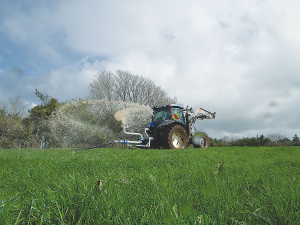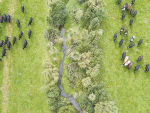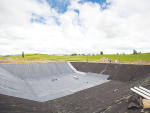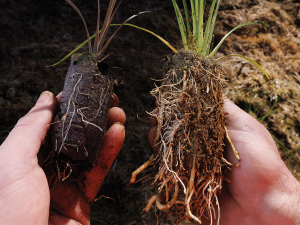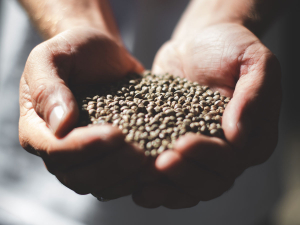Traditional spreading via tankers or umbilical systems have typically discharged effluent onto splash-plates, resulting in small droplet sizes, which in turn lead to odours, but probably more importantly, the loss of nitrogen by volatilisation.
The Nevada RainWave, originally developed by a German farmer in response to the banning of conventional splashplates in Europe, is said to result in a larger droplet size and the ability to spread wide, despite running low pressures and high flow rates.
The oscillating spreading head, not unlike the design of a traditional garden sprinkler, moves left to right as effluent hits the plate, creating large droplets that fall gently to the ground, in what is described as a “rain-like” manner. The action is said to reduce wind-drift and evaporation, so is particularly useful near watercourses or urban developments.
Spreading width can be adjusted from 6 to 18 metres, with a range of spreader heads, and the ability to deals with outputs of up to 200 cubic metres per hour. The benefits of a widespread allows application depths to be cut to as low as 1mm, for rapid absorption and reduced ponding, while also allowing operators to reduce speeds to less than 7km/h.
The option, said to deliver more than double the output of a conventional splash plate, is “driven” by the flow of effluent, has minimal maintenance requirements other than a regular greasing and is said to create very little contamination to the grass sward, allowing re-grazing over a shorter cycle.
Available for use with most makes of tankers or umbilical systems and able to deal with solids content up to 20%, the use of stainless steel throughout, is said to offer low maintenance and an extended service life.
www.nevadagroup.co.nz





